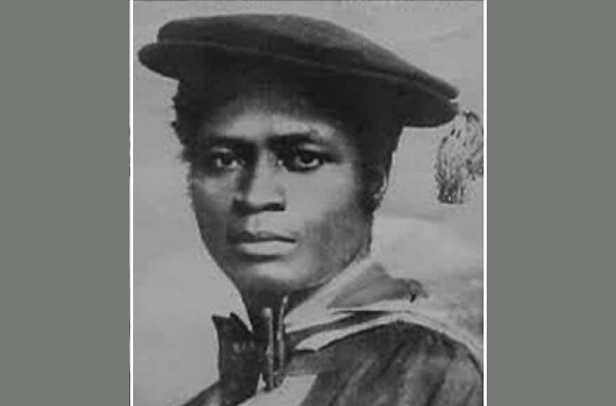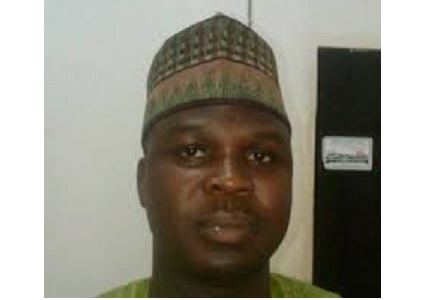Currently, in Nigeria, two professors share the achievement of being the youngest professor in the country and we will take a look at their profiles.
Youngest Professors in Nigeria
1. Professor Ayodele Awojobi
The first one is Ayodele Awojobi. He was popularly called “Dead Easy”, “The Akoka Giant”, and “Macbeth” and he became a professor at the age of 37. Awojobi earned the nickname, ‘Macbeth’ in his secondary school when the lead actor took ill a week before, and so Ayodele was called upon to play the lead role in his stead.

It is said that not only did Ayodele master his lines as lead actor, but also the entire play, such that he was able to prompt the cast whenever they forgot their lines
Ayodele Awojobi was born in Oshodi, Lagos State on the 12th of March 1937. Awojobi grew up to become a popular Nigerian academic, author, inventor, social crusader and activist.
His academic traits began to manifest while he was at the CMS Grammar School. At that time, he was known to be gifted in mathematics, the sciences, and even the arts. In fact, he was a member of the school’s literary and debating society.
Awojobi passed his West African School Certificate examinations with a record eight distinctions in 1955. He proceeded to the Nigerian College of Arts, Science and Technology, Ibadan, for his General Certificate of Examinations, GCE (Advanced Level), where, in 1958, he sat for and obtained distinctions in all his papers: Physics, Pure Mathematics and Applied Mathematics. In 1962 Awojobi was awarded his first degree in mechanical engineering – a BSc (Eng) London, with first-class honours, at the then Nigerian College of Arts, Science and Technology, Zaria (now Ahmadu Bello University, Zaria).
He completed his engineering degree in a record three years, a feat which was impracticable prior to his admission. After his undergraduate degree, the Federal Government awarded Awojobi a scholarship in 1962 to study further at the post-graduate level in the field of Mechanical Engineering at the Imperial College of the University of London (now Imperial College London). He completed the course, successfully defending his thesis, and was awarded a PhD in mechanical engineering in 1966.
Awojobi was considered a scholarly genius by his teachers and peers alike. He taught at the University of Lagos for several years after which, he returned to the Imperial College London for a research study in the field of Vibration, and was awarded the degree of Doctor of Science, DSc.
He returned to the University of Lagos and enrolled as a lecturer in the Faculty of Engineering, University of Lagos, Akoka in 1974 and was made an associate professor, the University of Lagos Senate.
However, when the university heard that Awojobi had just been awarded the degree of Doctor of Science (DSc), he was immediately appointed Professor in Mechanical Engineering, making him the youngest professor in the Faculty of Engineering, University of Lagos and the first ever to be expressly promoted from associate to full professorship within a week.
Also, he was the first African to be awarded the degree of Doctor of Science (DSc) in mechanical engineering at the then Imperial College of Science and Technology, London (now Imperial College London). The Doctor of Science degree is only exceptionally and rarely awarded to a scholar under the age of 40.
2. Professor Ahmad Doko
The second professor on our list is Ahmad Ibrahim Doko. He was promoted to the rank of Professor of Quantity Surveying in 2015 at the age of 37 making him the youngest professor at the Ahmadu Bello University Zaria.

Professor Doko was born in Niger State in 1978 at Doko town, where he attended North Primary School, Doko between 1979 and 1985, and from where he proceeded to Government Secondary School, Doko and Ahmadu Bello University Demonstration Secondary School between 1985 and 1991.
He proceeded to Ahmadu Bello University, Zaria in 1991, where he obtained his B.Sc degree in Quantity Surveying in 1998, after which he joined the quantity surveying department of the university as assistant lecturer in 2000.
Doko proceeded to King Fahd University of Petroleum and Minerals, Saudi Arabia, in 2001, where he obtained his M.Sc degree in construction engineering and management in 2003, from where he proceeded to Loughborough University, United Kingdom in 2004, where he obtained his Ph.D degree in 2007.
Professor Doko served as head of quantity surveying department of the university between 2008 and 2012. During this period, he was appointed as the managing director of the main consultancy firm of the university (ABUCONS) in 2010.
Being a Professor in Nigeria: What Does It Entail?
When it comes to achieving the highest academic rank in the university which is the professorship, the journey can be likened to that of the proverbial thousand miles.
However, it seems some academics have found a way to hack the system by taking quicker steps hence leading to them reaching their destination faster.
In this post, we have decided to take a look at a couple of individuals that have attained the position of professor in the country at a relatively young age.
But first, let’s take a look at what it entails to become a University Professor.
Basically, the rank of a professor is a University based appointment but prior to achieving this rank, there are other ranks to attain.
On the path to becoming a professor, one of the first ranks you will attain is the instructor position. Typically, instructors hold a minimum of a Master’s degree or equivalent and they must have completed most or all of the requirements for the doctorate or its equivalent.
After the instructor rank, the next position is the Assistant Professor. Generally, an assistant professor is expected to have earned a doctoral or professional degree (such as a law degree) or equivalent and they must have demonstrated a commitment to teaching and scholarly or professional work of high caliber.
The next is the Associate Professor which is a position that meets the requirements for appointment as an assistant professor but it differs in that the individual must also have a national reputation as a scholar or professional.
After reaching these prior positions, your final step is the appointment as a Professor. For this position, you are expected to meet the requirements for appointment as an associate professor. Also, you must have a distinguished record of accomplishment that leads to an international or, as appropriate, national reputation in their field of expertise.
This is impressive. Just at age 37. Incredible. I am indeed motivated
Check out the Profile of Prof Charles Esimone (The current VC of UNIZIK), He became A Professor of Pharmaceutical Microbiology @ 37 years also. And he is one of the highest ranked Academic in Nigeria in the area of Research in Pharmaceutical Science. He is also a world renowned in his field.
PROFILE OF THE VICE-CHANCELLOR ELECT
Charles Okechukwu Esimone was born in Tiko, Cameroon. He graduated from St. Joseph’s College Sasse, Cameroon and with B. Pharm, M. Pharm and PhD from the University of Nigeria. He hails from Akwaeze, Anaocha Local Government Area of Anambra State.
He is Professor of Biopharmaceutics and Pharmaceutical Microbiology in the Faculty of Pharmaceutical Sciences, Nnamdi Azikiwe University and the Pioneer Dean of the Faculty. Professor Esimone was the former Deputy Vice Chancellor (Academic) of the Nnamdi Azikiwe University, Awka.
He became a professor at the age of 37, emerging as the youngest professor in the University and her first professor of Pharmacy as well as the first professor of Pharmaceutical Microbiology in Southeastern Nigeria.
He has well over 200 publications. Recently, in “The List of 28 Most Published Scholars in Nigeria”, Prof. Charles Okechukwu Esimone was nominated as the 18th most published scholar in Nigeria. He has pioneered research in the use of recombinant viral vectors as surrogates for high through-put antiviral screening studies and on the use of indigenous medicinal plants as immunomodulators, vaccine adjuvants and anti-infectives. His vector-based antiviral screening technique developed between 2003 and 2005 in Germany has significantly revolutionalized high-throughput screening for anti-HIV compounds world-wide.
He speaks English, French and German. He is a recipient of several awards which include the Alexander von Humboldt Fellowship to Germany (2003-2005), Visiting Scientist to the University of Pittsburgh, USA (2007-2008), the ANDI Bright Contest Award for the Best African Innovative Researcher, South Africa (2009), Young Scientist representing Nigeria at the “Summer davos” Annual Meeting of New Champions, Tianjin, China (2010) and the CV Raman Senior Fellowship, India (2013).
He is a member of the Governing Council of the Pharmacists Council of Nigeria, the Nnamdi Azikiwe University and the Nanomedicine Society of Nigeria. He is indeed the Pioneer National President of the Nanomedicine Society of Nigeria. He has successfully supervised over 50 postgraduate students. He is a recipient of various national and international grants and a reviewer to several national and international journals.
He is a member of several professional bodies including the Global Young Academy and the American Society for Cell Biology. Prof. Esimone is a Fellow of the Nigerian Academy of Science, Fellow of the Pharmaceutical Society of Nigeria and Fellow of the Nigerian Academy of Pharmacy.
He is the State Campus Coordinator for Deeper Life Campus Fellowship, Anambra State and also a member, BOT (Board of Trustees) of Anchor University, Lagos. He is happily married and the marriage is blessed with three boys and two girls.